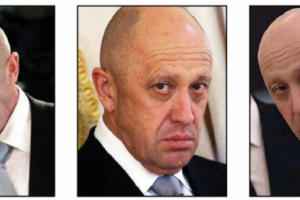PONARS Eurasia: Your Monday Take – In the News [re: Prigozhin Apparent Mutiny]

(PONARS Eurasia – ponarseurasia.org – July 3, 2023)
Ponarsians have weighed in en masse to interperet Yevgeny Prigozhin’s apparent mutiny. Kimberly Marten, who has long studied his Wagner Group, cautions that calling it a private military company belies the fact that it works on behalf of the Russian State and that, contrary to popular belief, Prigozhin is more its fixer than its commander. She believes Prigozhin himself can no longer come out on top, but thinks his actions will lead to others in Putin’s inner circle feeling emboldened. Others’ perspectives follow.
Mikhail Alexseev points out Prigozhin was not mobilizing against Putin or against the war, rather against the military command and their tactics.
Pavel Baev suggests the coup attempt will impede Russia’s ability to project power in Africa and Asia, and has exposed its weaknesses to China.
Petro Burkovskyi now expects “inevitable purges” in the military and elites and a “period of great instability” that will strain the Kremlin.
Samuel Charap calls the mutiny a chink in the Kremlin’s armor and the aftermath a threat to morale, but thinks the regime can recover.
Timothy Frye notes Putin did not call on the public to demonstrate support, suggesting “Putin thinks he’s less popular than many other people think.”
Samuel Greene suggests Putin’s poor response will trigger “increasingly chaotic and violent” elite conflict.
Tetyana Malyarenko and Stefan Wolff write the Ukrainian military could have done more to capitalize on the chaos if it were better equipped and trained.
Nikolai Petrov judges Putin “more dangerous than before this mutiny” as he will feel forced to demonstrate strength.
Pavel Podvig finds Russia’s nuclear storage sites well-guarded and Wagner forces unlikely to target them.
Graeme Robertson believes more repression is almost certain in the short term.
Kirill Rogov points out Putin resolved the coup by making concessions, demonstrating his vulnerability.
Peter Rutland writes the threat from nationalists may not be over, but adds Putin is a resilient politician who may still be able to weather the storm.
Simon Saradzhyan sees the coup as weakening Putin, though stops short of calling it the “beginning of the end” for the regime.
Gulnaz Sharafutdinova calls the uprising “a glitch in the matrix” that reveals elite conflict, provoking “laughter and disbelief” in the Russian public.
Konstantin Sonin writes that Putin’s penchant for surrounding himself with loyal commanders over competent ones is what has made the invasion of Ukraine such a failure.
Kathryn Stoner concludes that the rebellion, and the lack of resistance to it, may have led Putin to fear a broader uprising.
David Szakonyi calls these events “a distraction for Russia’s war effort” that “exposed weaknesses and miscommunication within the Russian regime among its top elites.”
Brian Taylor predicts Defense Minister Sergei Shoigu will be pushed to the background in the coming weeks but that Prigozhin will need to watch out for retaliation.
Mikhail Troitskiy highlights the public’s apathy towards both Prigozhin and Putin.
Elizbeth Wishnick suggests that the events have Chinese officials concerned for the Putin regime’s stability.
